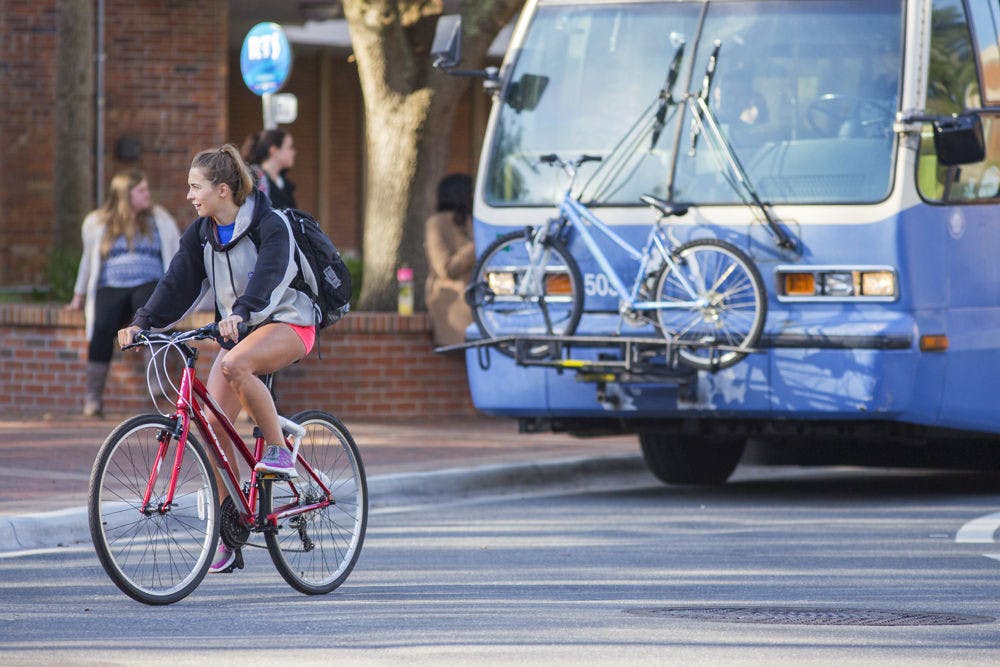Anthony Confrancesco said he zips nearly five miles through campus every day on his six-gear bicycle.
A UF study assessing bicycle services around transit stations, such as lanes and racks, shows that most people aren’t as willing to ride as far on bicycles as Confrancesco is to make their daily commutes.
The study, published online in August and to be printed this April, found that cyclists are willing to travel an average of one to two miles to use public transportation in Atlanta and Minneapolis and three miles in Los Angeles, said Hartwig Hochmair, the study’s researcher and a UF geomatics associate professor.
Hochmair collected on-board surveys conducted by the three cities, which asked people on buses how far they rode their bicycles to their stops.
“Public planning agencies now know that they should make the two-mile radius around transit hubs more bike-friendly to encourage cyclists to ride to public transportation,” Hochmair said.
Gainesville was recently voted the 37th most bicycle-friendly city by bicycling.com. However, Moving Alachua County Forward — the transportation initiative to raise a 1-cent sales surtax to help improve road and bike lane conditions — was rejected by voters in the November elections.
Alachua County still has plans to improve bicycle and pedestrian lanes as part of the County Mobility Plan, said Jeff Hays, Alachua County Transportation Planning manager.
“These will be funded through our Multi-Modal Transportation Mitigation Program (independent of the Moving Alachua County Forward initiative) and many of them do provide connectivity to current and future planned transit stops,” Hays said.
Stephen Schwartz, a 20-year-old UF applied physiology and kinesiology junior, said he believes RTS needs to look into the number of bicycles buses can hold so more bicyclists can use the system. Currently, each rack can only hold two to four bicycles.
“If people are biking to bus stops, they’ll be using the racks on the front of the bus and it’ll be an indication of how many people bike to public transport,” said Schwartz, who is also a Student Government free bike repair employee.
As president of Team Florida Cycling, Confrancesco, a 20-year-old UF accounting junior, said he chose a bicycle as his main form of transportation because of UF’s many bicycle lanes and low speed limits.
“Ninety percent of the time it’s easier and faster to ride a bike around campus and the UF area because you don’t have to worry about parking,” he said.
Confrancesco often supplements his commuting ride with an additional 25 miles worth of cycling with Team Florida Cycling.
He believes that by improving conditions for bicyclists on the road and on the bus, it would increase the number of people using both forms of transportation.
[A version of this story ran on page 3 on 1/23/2015 under the headline “UF study shows city residents less likely to bike to public transit"]
Up to 4 percent of those who take a bus or train to work rode bicycles to get to the transit hub, new UF/IFAS research shows. Those bicyclists pedaled an average of 2 miles to the stations, according to data analyzed by UF/IFAS geomatics Associate Professor Henry Hochmair.






